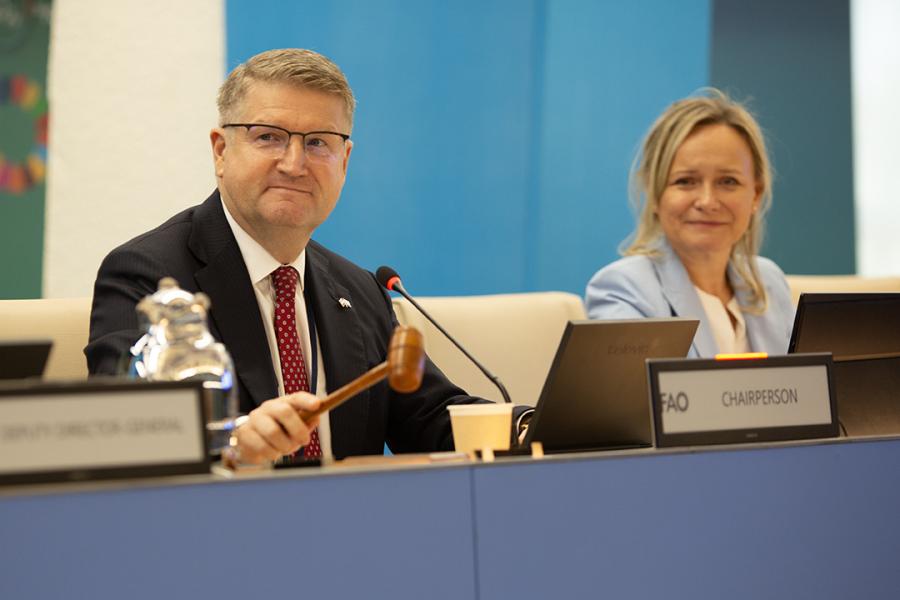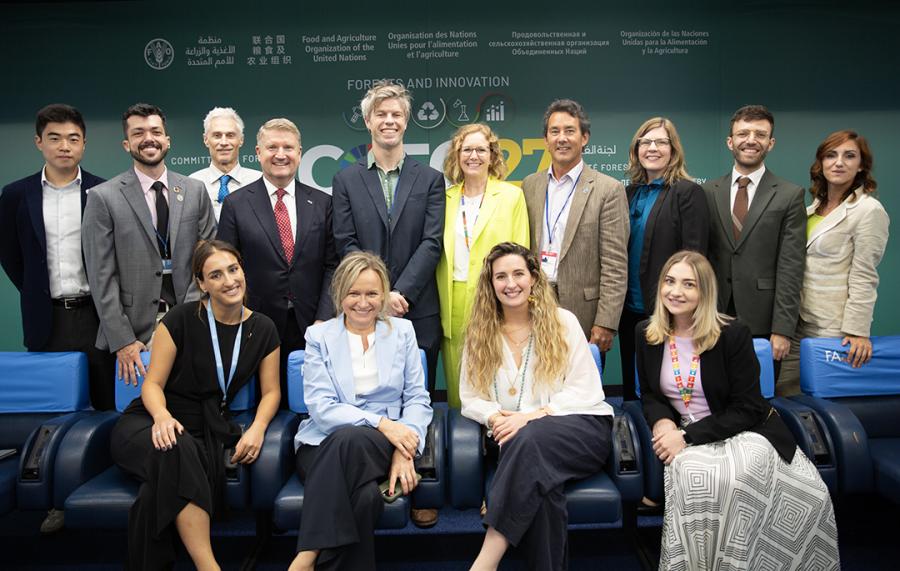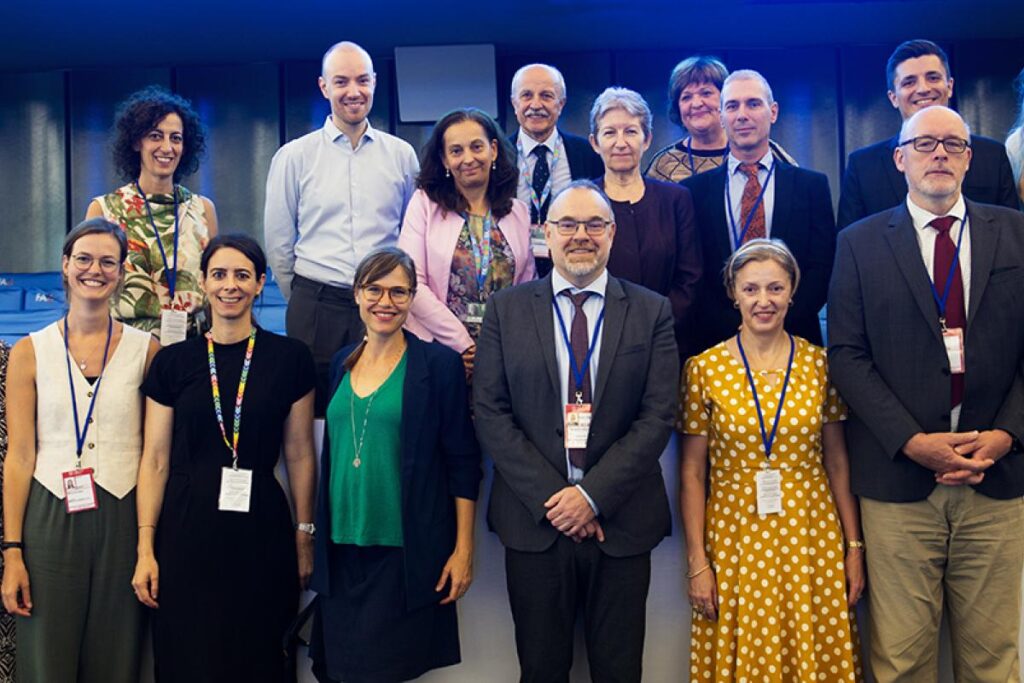
COFO 27 Chair Günter Walkner (left)
Forests are crucial and irreplaceable in the work to tackle climate change, biodiversity loss, water management, land degradation, disasters, hunger, poverty, malnutrition, and other challenges facing people around the globe. Realizing the potential of forests to address these challenges requires not only stemming the rapid rate at which we are losing them, but also greater collaboration and cooperation across countries, at all levels, with relevant organizations, sectors, and actors on the ground at the frontlines of these crises.
Over the week, the 27th session of the Committee on Forestry (COFO 27) has brought together its Members to engage in technical discussions and agree on a way forward towards this work. Some of the key achievements, as highlighted by Food and Agriculture Organization of the UN (FAO) Deputy Directory-General Maurizio Martina in his closing remarks, include the endorsement of the FAO Forestry Roadmap, which will guide FAO Forestry’s work through 2031 to support the transformation towards more efficient, inclusive, resilient and sustainable agrifood systems.
The launch of State of the World’s Forests SOFO 2024, which explored how Members can scale up responsible, inclusive innovation and optimize forest-based solutions. Examined cross-sectoral relations with agriculture, and enhancing linkages between forests, climate change, and water management; and recognized the FAO’s role in advancing a forest-based bioeconomy.

Martina announced that COFO 27 had seen a record attendance of 1,000 participants, from 120 FAO Members, and 30 observer groups, with an additional 5,000 people following online. COFO 27 Chair Günter Walkner thanked participants for the wide-ranging discussions from the week and for working hard to reach a consensus. He brought the meeting to a close at 2:29 pm.
A World Forestry Week Special Event on the FAO Green Cities Initiative took place during the day. During its opening FAO Director General Qu Donqyu announced the official launch of the FAO Green Cities Network, aimed to foster a global movement dedicated to building green infrastructure, improving food security, boosting local economies and enhancing the quality of urban life.
Participants also heard about efforts to expand and protect urban forests and tree cover globally, including in Uganda, Spain, Algeria, and Colombia. Deputy FAO Directory-General Martina announced the winners of the Green Cities Award: Mendoza, Argentina, for its innovative approach to metropolitan gardens; and Newcastle, UK, for its youth engagement programme enabling youth to participate in the greening of the city.









